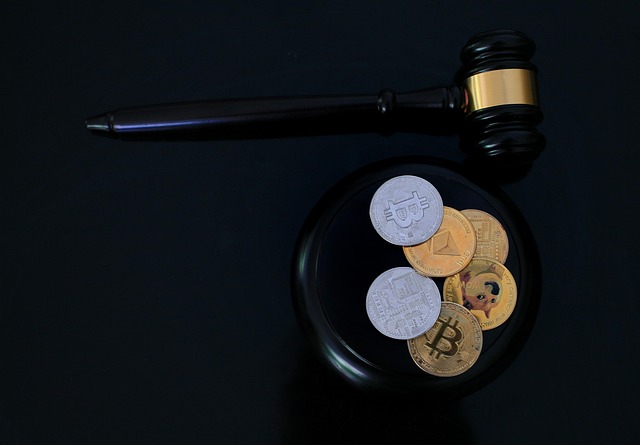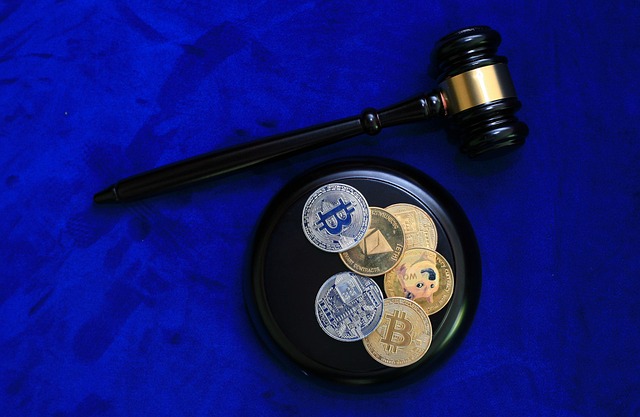Is Binance Trading Legal in Pakistan 2025: Complete Guide
Author: Jameson Richman Expert
Published On: 2025-10-29
Prepared by Jameson Richman and our team of experts with over a decade of experience in cryptocurrency and digital asset analysis. Learn more about us.
Is Binance trading legal in Pakistan is one of the most searched questions by Pakistani crypto users in 2025. This comprehensive guide explains the current legal landscape, regulatory updates, practical ways to access international exchanges like Binance, risks and compliance steps, tax implications, and alternatives — all backed with authoritative resources and actionable tips so you can make informed decisions while staying within local law.

Quick summary
In short: Pakistan does not yet have a fully developed statutory framework that explicitly legalizes or prohibits retail cryptocurrency trading, but regulators and the central bank have issued warnings and operational limitations over the years. International exchanges such as Binance are accessible to Pakistani users, but banking restrictions, KYC/AML rules, and enforcement uncertainty create practical obstacles and legal risk. This article details what that means for traders in 2025, safe practices, compliance steps, and where to find more information.
Table of contents
- Regulatory overview: Pakistan and cryptocurrencies (2025)
- Can Pakistanis use Binance — practical access and limitations
- Legal and compliance risks to consider
- How to trade as safely and legally as possible
- Taxation and reporting expectations
- Alternatives to Binance and the referral links
- Useful official resources and further reading
- FAQs
- Conclusion and next steps
Regulatory overview: Pakistan and cryptocurrencies (2025)
Understanding government stance is the first step. Pakistan’s regulatory environment for cryptocurrencies has evolved gradually and remains cautious.
- Central bank (State Bank of Pakistan - SBP): Historically the SBP has issued advisories warning the public about the risks of cryptocurrencies and instructing banks not to provide services for crypto firms without prior authorization. That caution continues in 2025, focusing on AML/CFT risks and consumer protection. See the State Bank of Pakistan for official circulars: State Bank of Pakistan.
- SECP and other regulators: The Securities and Exchange Commission of Pakistan (SECP) and tax authorities (FBR) have been studying regulatory frameworks and pilot approaches. Proposals for licensing, AML/CFT controls, and investor safeguards have been under discussion, but a single uniform law legalizing all crypto activity has not been enacted nationwide as of 2025. Visit the SECP site for regulatory updates: SECP Pakistan.
- Practical effect: The net effect is a regulated-but-restrictive environment: private individuals may hold and trade crypto through non-banned exchanges, but banks and payment providers face limitations, making fiat on/off ramps difficult.
For a high-level background on how cryptocurrency regulations differ across countries, see the Wikipedia overview: Cryptocurrency regulation (Wikipedia). For Pakistan-specific history see: Cryptocurrency in Pakistan (Wikipedia).

Can Pakistanis use Binance — practical access and limitations
Many Pakistanis ask directly: is Binance trading legal in Pakistan? The answer requires nuance.
1. Legality vs. accessibility
There’s a difference between a government expressly banning Binance (or crypto trading) and practical accessibility. As of 2025:
- No blanket nationwide criminalization of private crypto ownership and trading has been confirmed by clear statute — meaning individual trading on global platforms is not automatically a criminal offense.
- However, Pakistani authorities maintain strong cautionary messaging and banking restrictions that limit how users can move PKR to/from crypto platforms. Banks may refuse transactions tied to crypto platforms, and some payment channels are closed.
2. Binance account creation and KYC
International exchanges like Binance require Know-Your-Customer (KYC) verification. Pakistani nationals can typically register an account and complete KYC on Binance, subject to the exchange’s own country policies and sanctions checks. To register with Binance, use the official signup link: Create a Binance account.
3. Fiat on/off ramps and P2P
Because conventional bank support is limited, Pakistani traders commonly use:
- Peer-to-peer (P2P) trading on Binance and other platforms to buy/sell crypto for local currency.
- Stablecoins (USDT, USDC) for value transfer, then moving funds via crypto rails to international counterparties.
- Third-party payment processors where permitted, or crypto OTC desks.
Binance’s P2P marketplace can facilitate local trades, but users must take extra care with counterparty risk and properly document transactions.
Legal and compliance risks to consider
Trading crypto in Pakistan carries specific legal and operational risks. Below are the key risk areas and recommended mitigations.
1. Banking and payment restrictions
Risk: Banks may block deposits/withdrawals linked to crypto platforms, freeze accounts, or decline to process transfers.
Mitigation: Keep clear transaction records, avoid routing funds through third-party accounts without clear documentation, and consider using P2P platforms with escrow features only after verifying counterparties.
2. AML/CFT enforcement
Risk: Authorities prioritize anti-money-laundering and countering financing of terrorism (AML/CFT). Suspicious patterns in crypto usage may trigger investigations.
Mitigation: Comply with KYC requirements, maintain transparent records for source of funds, and consider consulting a compliance professional if your volumes are large.
3. Tax and reporting risk
Risk: Failing to report gains could lead to tax penalties if tax authorities require disclosure or audit accounts.
Mitigation: Keep transaction histories and consult a tax professional to understand obligations under Pakistan tax law and FBR guidelines.
4. Exchange risk and custodial risk
Risk: Using an international exchange means exposure to platform outages, hacks, or regulatory actions against the exchange.
Mitigation: Use strong security (2FA, withdrawal whitelists), diversify holdings, and consider self-custody for long-term storage (hardware wallets).
5. Legal uncertainty and policy changes
Risk: Regulatory policies could change rapidly. What’s permitted today may be restricted tomorrow.
Mitigation: Monitor official channels (SBP, SECP) regularly, and avoid locking large portions of assets in forms that you cannot move in the event of regulatory changes.
How to trade as safely and legally as possible
Below are practical, step-by-step recommendations for Pakistani users asking is Binance trading legal in Pakistan and wanting to minimize risk.
- Stay informed: Follow official advisories from the State Bank of Pakistan and SECP. Subscribe to reputable crypto news outlets and law firm updates that cover Pakistan.
- Verify platform legitimacy: Only use official exchange domains and enable 2FA. Avoid phishing links and double-check URLs and SSL certificates.
- Use complete KYC: Register and verify your identity on exchanges to reduce account freeze risk and to meet AML compliance requirements.
- Start small: Test deposits/withdrawals with small amounts before scaling up.
- Use P2P responsibly: Prefer traders with high completion rates and documented proof of payment. Keep transaction screenshots and bank receipts.
- Recordkeeping: Maintain a spreadsheet or use tax software to record buys, sells, transfers, and dates for tax reporting and audit defense.
- Security hygiene: Use hardware wallets for long-term holdings, avoid sharing recovery phrases, and rotate passwords. Implement withdrawal whitelist addresses where possible.
- Compliance and legal counsel: For high-volume trading or institutional activity, seek legal or compliance advice from a local lawyer who understands crypto regulation.
Example: A safe P2P workflow
- Open a verified Binance account with KYC completed using the official link: Binance registration.
- Find a reputable P2P seller in Pakistan with good escrow reviews.
- Make a bank transfer directly to the seller’s verified bank account, keep the receipt, and finalize the trade on the platform so the crypto is released from escrow.
- Move purchased crypto to a personal wallet or convert to a stablecoin and move to an international exchange if needed for trading.
Note: Do not use VPNs to bypass local restrictions in ways that would violate terms of service or local laws. Always prioritize lawful compliance.

Taxation and reporting expectations
Tax laws involving crypto remain an emerging area. As of 2025, Pakistan’s tax authority (FBR) has shown interest in taxing crypto activities, and several countries have been increasing enforcement on crypto taxation. Key points:
- Report realized gains: If you sell crypto for PKR or convert to fiat and realize gains, those gains may be taxable as capital gains or business income depending on the circumstances.
- Keep full records: Dates, amounts, fiat values at transaction time, wallets, and counterparties.
- Consult the FBR or a tax professional: Tax treatment depends on personal circumstances — trading frequency, amounts, and whether crypto activity is a business or investment.
It is prudent to treat crypto gains as taxable until clear exemptions or rules are issued, and to retain proof of all transactions for audit purposes.
Alternatives to Binance and exchange referral links
If you’re exploring alternatives to Binance or want to diversify where you trade, several major international exchanges accept users from many jurisdictions. Below are reputable platforms and their referral links for account signup. Remember to check each exchange’s local availability and KYC requirements before registering.
- Binance (global) — create an account here: Binance registration link.
- MEXC — an alternative exchange often supporting a broad asset list: Sign up at MEXC.
- Bitget — popular for derivatives and spot trading: Register at Bitget.
- Bybit — strong derivatives and perpetuals platform: Join Bybit.
Each platform has pros and cons for liquidity, fees, and regulatory posture; choose based on your trading style, pair availability, and compliance needs.
Useful resources, trading education, and technical tools
For traders who want to build skills and use tools responsibly, the following resources can help:
- Real-time price charts and technical guides: See detailed trading guides and live chart analysis at CryptoTradeSignals: Bitcoin price chart & trading guide.
- Comprehensive exchange trading guides: For step-by-step usage of Binance and related platforms, check this guide: Can you trade in Binance — 2025 guide.
- Arbitrage strategy and automation: If you’re exploring arbitrage, understand risks and bots from expert roundups: Best crypto arbitrage bots and strategies.
- Long-term market outlook and analysis: For macro perspectives and long-term forecasts for assets like Bitcoin, see: Bitcoin price prediction & future outlook.

FAQs — Common questions about "is Binance trading legal in Pakistan"
Q: Is owning crypto in Pakistan illegal?
A: No clear nationwide ban criminalizing private ownership has been enacted by statute as of 2025, but regulatory advisories and operational banking constraints make the environment cautious. Always follow official guidance and report taxable events.
Q: Can Pakistani banks transfer funds to Binance?
A: Many banks exercise caution and may block transfers that they identify as related to crypto platforms. P2P and stablecoin rails are commonly used alternatives, but they carry additional counterparty risk.
Q: Will my Binance account be frozen if I’m in Pakistan?
A: Exchanges can freeze accounts for suspicious activity or if they detect policy violations. Completing KYC, following platform rules, and keeping records reduces the likelihood of adverse action.
Q: Should I use a VPN to access exchanges?
A: Using a VPN to bypass geo-restrictions or sanctions is risky and may violate exchange terms of service and local law. It is not recommended.
Q: How do I report crypto income to Pakistani tax authorities?
A: Maintain detailed transaction records and consult a qualified tax advisor in Pakistan to ensure proper declaration and compliance with FBR requirements.
Conclusion and next steps
So, is Binance trading legal in Pakistan? The short answer: there is no simple yes/no. Pakistan’s regulators have not fully legalized or banned retail crypto activity through a single definitive statute; however, practical restrictions from banks and regulatory advisories create significant friction and legal ambiguity. Individuals can access international exchanges like Binance but should do so with careful attention to KYC, recordkeeping, tax reporting, and security practices.
Recommended next steps:
- Monitor official SBP and SECP announcements regularly.
- If you trade, complete KYC on reputable exchanges (e.g., sign up at Binance here: Binance registration).
- Keep detailed records for tax reporting and consult an accountant or lawyer experienced in Pakistani crypto tax law.
- Use security best practices — hardware wallets, 2FA, and small test transfers.
- Explore alternative exchanges like MEXC, Bitget, and Bybit if you need different features: MEXC, Bitget, Bybit.
Finally, expand your trading knowledge and risk management skills via reputable educational posts and market analysis — for example, detailed trading charts and guides at CryptoTradeSignals: Bitcoin chart & trading guide, practical Binance usage guidance: Can you trade in Binance — 2025 guide, arbitrage strategies: Best crypto arbitrage bots, and long-term market outlooks: Bitcoin 2050 prediction & outlook.
Disclaimer: This article provides general information and is not legal, tax, or investment advice. Regulations change frequently. Consult a qualified lawyer and tax advisor in Pakistan before making significant financial decisions.